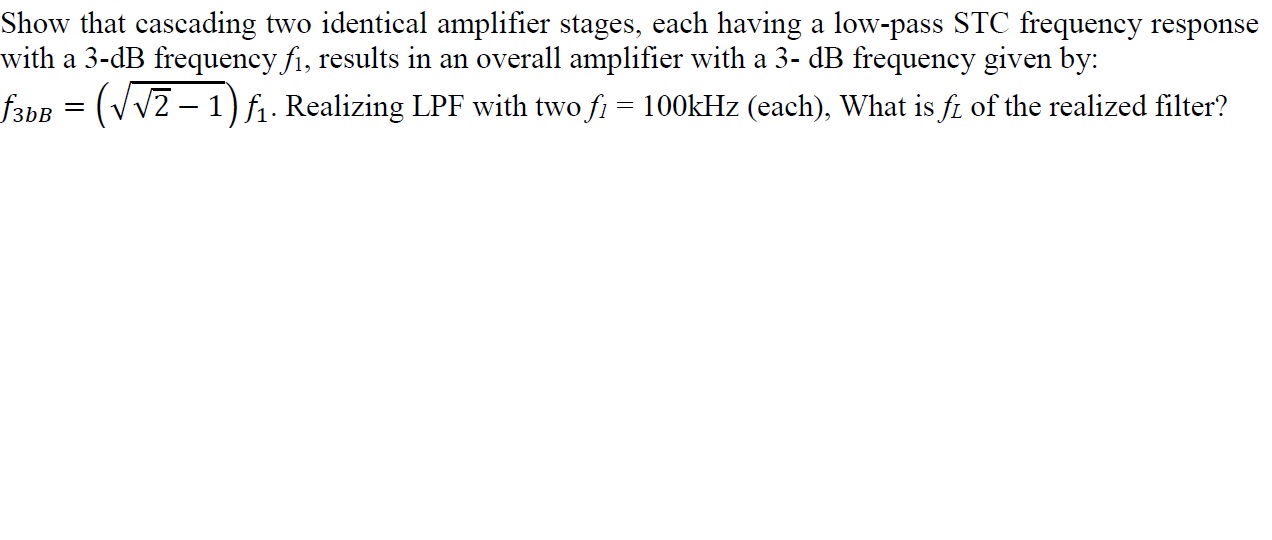I know that the transfer function of a low pass filter would be of the form
\$1/(1+s/\omega_c)\$
Two in cascade would have a transfer function equal to:
\$1/(1+s/\omega_c)^2\$
I am still unable to arrive at the correct expression for the -3 dB frequency. Any thoughts?

